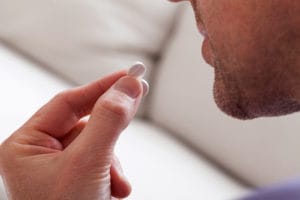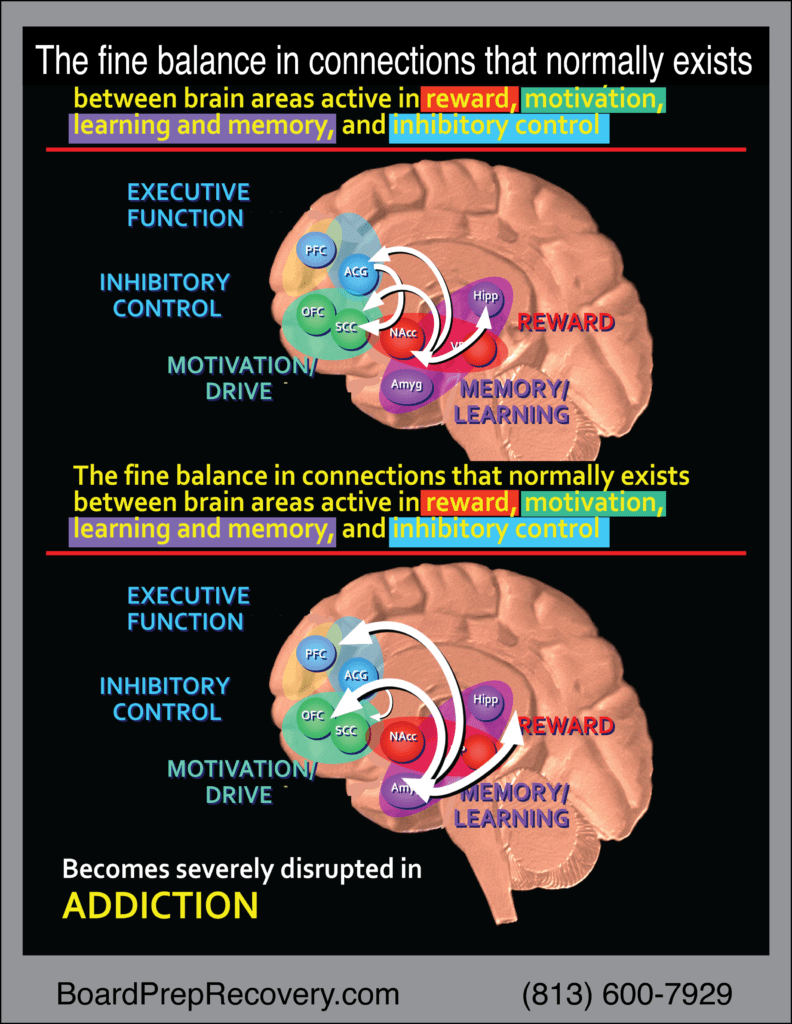Rehab Medications in 2017
How Medications are Utilized Today to Support the Treatment of Addiction and Dual Disorders
Treatment of addiction and dual disorders is more effective today than ever, in part due to medical advances in the past 20 years. In the 80s and 90s, only a few medications were available to assist with recovery; librium, clonidine and elavil were the mainstays of rehabs. Seizure prevention and some symptom relief were the primary goals.
Today however, we know that long-term success is set in motion by early engagement strategies. Early and mid-range medical interventions that address not only withdrawal, but also relapse prevention and dual disorders are key to long term success.
How are medications used in 2017 in treatment?
excerpt from: https://www.drugabuse.gov/publications/drugfacts/treatment-approaches-drug-addiction

Medication Assisted Treatment
Medications can be used to manage withdrawal symptoms, prevent relapse, and treat co-occurring conditions.
Withdrawal. Medications help suppress withdrawal symptoms during detoxification. Detoxification is not in itself “treatment,” but only the first step in the process. Patients who do not receive any further treatment after detoxification usually resume their drug use. One study of treatment facilities found that medications were used in almost 80 percent of detoxifications (SAMHSA, 2014).
Relapse prevention. Patients can use medications to help re-establish normal brain function and decrease cravings. Medications are available for treatment of opioid (heroin, prescription pain relievers), tobacco (nicotine), and alcohol addiction. Scientists are developing other medications to treat stimulant (cocaine, methamphetamine) and cannabis (marijuana) addiction. People who use more than one drug, which is very common, need treatment for all of the substances they use.
- Opioids: Methadone (Dolophine®, Methadose®), buprenorphine (Suboxone®, Subutex®, Probuphine®), and naltrexone (Vivitrol®) are used to treat opioid addiction. Acting on the same targets in the brain as heroin and morphine, methadone and buprenorphine suppress withdrawal symptoms and relieve cravings. Naltrexone blocks the effects of opioids at their receptor sites in the brain and should be used only in patients who have already been detoxified. All medications help patients reduce drug seeking and related criminal behavior and help them become more open to behavioral treatments.
- Tobacco: Nicotine replacement therapies have several forms, including the patch, spray, gum, and lozenges. These products are available over the counter. The U.S. Food and Drug Administration (FDA) has approved two prescription medications for nicotine addiction: bupropion (Zyban®) and varenicline (Chantix®). They work differently in the brain, but both help prevent relapse in people trying to quit. The medications are more effective when combined with behavioral treatments, such as group and individual therapy as well as telephone quitlines.
- Alcohol: Three medications have been FDA-approved for treating alcohol addiction and a fourth, topiramate, has shown promise in clinical trials (large-scale studies with people). The three approved medications are as follows:
- Naltrexone blocks opioid receptors that are involved in the rewarding effects of drinking and in the craving for alcohol. It reduces relapse to heavy drinking and is highly effective in some patients. Genetic differences may affect how well the drug works in certain patients.
- Acamprosate (Campral®) may reduce symptoms of long-lasting withdrawal, such as insomnia, anxiety, restlessness, and dysphoria (generally feeling unwell or unhappy). It may be more effective in patients with severe addiction.
- Disulfiram (Antabuse®) interferes with the breakdown of alcohol. Acetaldehyde builds up in the body, leading to unpleasant reactions that include flushing (warmth and redness in the face), nausea, and irregular heartbeat if the patient drinks alcohol. Compliance (taking the drug as prescribed) can be a problem, but it may help patients who are highly motivated to quit drinking.
- Co-occuring conditions: Other medications are available to treat possible mental health conditions, such as depression or anxiety, that may be contributing to the person’s addiction.
About BoardPrep

BoardPrep Recovery Residence
BoardPrep Recovery is an innovative behavioral health center located in South Tampa specializing in the treatment of complex dual disorders. Based on the successful physician health recovery model, BoardPrep improves long-term results through enhanced structure, coaching and ongoing recovery monitoring.
After 30 years of clinical experience, founders John and Liz Harden developed the BoardPrep treatment method. BoardPrep’s evidence-based approach improves patient follow-through and outcomes. Plans are customized to address the complex interplay of personal and environmental challenges, creating an optimal recovery experience.
Why Physicians Refer to BoardPrep
- Treatment based on brain-science
- Doctor to doctor communication
- Vivitrol provider
- Collaborative model
- Concierge approach with families
- Case management expertise
- Hospital liaison available
- Clinician to clinician handoff
BoardPrep Services
- Day-night
- Outpatient
- Ambulatory Detox
- In-Hospital Assessments
- 12 Step Treatment Model
- Recovery Residences
- Family Program
- Extended care
- Interventions
- Marchman Act facilitation
Improved Long-term Recovery Rates
BoardPrep is based on the successful physician health model. Eighty percent of treated doctors participating in prescribed follow-up remained successful. Everyone can be as successful as physicians are at recovery. BoardPrep utilizes the same “best practices” for all.
How to Refer
To refer a family member, colleague, employee, client or patient to BoardPrep, all you do is call. Most of our clients come to treatment through referral from a doctor, therapist, other professionals, family and alumni. If you are exploring treatment options for someone else, we can assist you in the process of getting them into treatment. Call us to discuss the individual circumstances. Many options are available.
Options include
- Direct admission
- Transfer from hospital or detox
- Consultation and tour
- Assessment appointment
- Intervention
Most people suffering from dual-diagnosis issues are not going to call on their own. They often need support and guidance during this difficult time. BoardPrep staff are experts at “receiving the handoff” from referral sources, wherever you are in the process. To refer someone, whether for consultation, assessment or treatment, just call 866-796-4720.
Professional referral sources
If you are a doctor, psychologist, therapist, attorney, clergy or pastor and wish to have ongoing communication with BoardPrep after admission, please advise us during the initial call. If a letter, reports or other documentation are needed, we are happy to accommodate.
 The Myth of “Hitting Bottom” and how Dual Disorders Hijack the Brain
The Myth of “Hitting Bottom” and how Dual Disorders Hijack the Brain
“When you hit bottom, the disease hands you a shovel and says DIG DEEPER!”
Getting sober and staying in recovery can be difficult. Whether the problem is alcohol, prescription medications or street drugs, most people who attempt recovery end up relapsing.
Ever been mesmerized when looking at something? Pre-occupied with hunger, unable to focus on anything but your empty stomach? Stuck in your thoughts about the loss of a love? Addiction to alcohol and other drugs is like that, it “hijacks” the reward center of the brain. Think of it this way, eating a meal or being with someone you love feels good, right? Well, just imagine that good feeling. Now multiply it times 10 . . . now times 100. Imagine how pleasurable that would feel. That’s what using or drinking can feel like to an addicted person. The pursuit of that pleasure becomes all-consuming.
Certain brain connections become supercharged with dopamine, while the connection between judgement and drive becomes much weaker
The reasonable part of the brain (executive) is overpowered by the base drive for pleasure (mid-brain). As addiction takes hold, the thinking part of the brain begins to serve the drive for the super-pleasure provided by the substance. The skills of rationalizing, justifying and excuse-making are developed and perfected.
Trying to quit FEELS like being deprived of food or ending a relationship. Most people relapse. The pursuit of super-pleasure is all-consuming. The brain has changed. But with the right treatment and follow-up, normal brain-function can be restored. With rigorous treatment, diligent follow-up and monitoring lasting recovery is possible. BoardPrep Recovery Center® tailors treatment plans to the individual, restoring the brain-function necessary for lifelong sobriety.
What about Marijuana?
Despite recent shifts in popular opinion about marijuana in the U.S., the fact remains that regular marijuana use is harmful, especially to young people.
Myths
What users say (and believe) about the drug
- “Marijuana is my medicine.”
- “It helps my anxiety.”
- “It helps me with my ADD.”
- “It’s not addicting.”
- “It’s not a gateway drug.”
The Truth
- Causes memory deficits and other cognitive problems
- Associated with loss of IQ
- Performance problems lead to increased frustration and anxiety
- “Amotivational syndrome” leads to anger with self for mounting failures
- Marijuana is “addicting.” The powerful high from today’s marijuana is very much “addicting.” People who like it, begin to pursue it to the exclusion of other things and begin rationalizing doing so.
- Using Marijuana is a gateway to other substances. Regular marijuana users are naturally exposed to people who are using and dealing other illicit substances. Marijuana users are clearly more likely to begin using other drugs – like Molly, Heroin, K2, Spice, Etizolam, Kratom and internet “designer drugs” and Cocaine.
The Evidence
- The following article shows the relationship between regular marijuana use starting at a young age and later emotional problems and attention problems:
- And the following article shows the relationship between regular marijuana use and problems with dampened response to reward:
What Does Recovery Look Like?
Recovery is …
… being honest with myself
… being able to enjoy life without drinking or using drugs like I used to
… living a life that contributes to society, to your family or to your betterment
… being the kind of person that people can count on
… about giving back
… striving to be consistent with my beliefs and values in activities that take up the major part of my time and energy.
Kaskutas, L. A., Borkman, T. J., Laudet, A., Ritter, L. A., Witbrodt, J., Subbaraman, M., Stunz, A., & Bond, J. (November 2014). Elements that define recovery: The experiential perspective. Journal of Studies on Alcohol and Drugs, 75(6), 999-1010.http://www.jsad.com/doi/abs/10.15288/jsad.2014.75.999
Recovery Means Healing the Brain
Repeated use of alcohol or other drugs changes the brain’s chemistry and structure. Treatment is based on the latest advances in brain science. The primary goal of treatment is to establish recovery. Recovery heals the brain over time.
Getting and staying sober can be difficult. Whether the problem is alcohol, prescription medications or street drugs, most people who attempt recovery end up relapsing. However, lasting recovery is possible. Treatment works best when driven by experienced clinical experts, bringing together the individual and family to develop a specific care plan. BoardPrep is comprised of top national experts specializing in addiction recovery, psychiatry and behavioral health.
How and Why Treatment Works
Effective treatment for addiction mirrors the NIDA “best practice” principles (National Institute of Drug Abuse)
BoardPrep Treatment Principles mirroring all 13 NIDA Best Practice Principles
- Comprehensive team-based clinical assessment process
- Full continuum-of-care
- Address the interplay of substance use with psychiatric disorders
- Address family and environmental risk factors
- On site addiction psychiatrist
- Integrated psychological and neuropsychological services
- Available Trans-cranial Magnetic Stimulation through consulting psychiatrist
- Family therapy, group, individual, couples, cognitive-behavioral, experiential
- Recovery support, home visits, twelve step facilitation, motivational interviewing
- Involuntary treatment referrals are accepted
- Varying “levels of care” are utilized to facilitate adequate duration in the treatment process
- Toxicology and biomarker test results are utilized for support and incentive.
- Positive tests result in modification of the treatment plan, not punishment.
- Promote improvements in career, school, family, coping and life skills – not just abstinence
- Two-year recovery support contracts are promoted to all BoardPrep participants
- Small patient cohort and frequent expert team meetings on each case
- Ambulatory detoxification available, as well as inpatient treatment at a partner facility if necessary
 If you are concerned about your own or someone else’s substance use or dual diagnosis, call BoardPrep for a complimentary phone consultation or face-to-face evaluation today.
If you are concerned about your own or someone else’s substance use or dual diagnosis, call BoardPrep for a complimentary phone consultation or face-to-face evaluation today.
Call 866-796-4720






